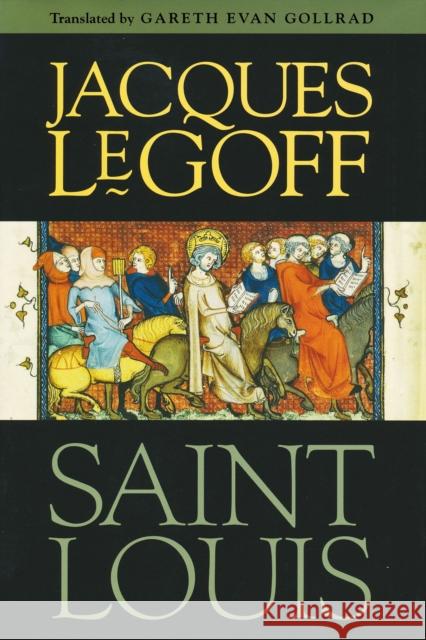Saint Louis » książka
Saint Louis
ISBN-13: 9780268033811 / Angielski / Twarda / 2009 / 952 str.
"Life of a king, life of a saint, life of a man. In this work, Jacques LeGoff, one of the truly great medieval historians of our times, magisterially plumbs the depths of the fundamental contradiction of Saint Louis: is it possible to be both a king and a saint? St. Louis lies at the intersection of reasons of state and divine reason; he is an individual around whom LeGoff turns like a detective searching for an ever-elusive truth, that of a life and a legend inextricably intertwined. A fine, eminently readable translation. " --Robert J. Morrissey, University of ChicagoCanonized in 1297 as Saint Louis, King Louis IX of France (1214-1270) was the central figure of Christendom in the thirteenth century. He ruled when France was at the height of power; he commanded the largest army in Europe and controlled the wealthiest kingdom. Renowned for his patronage of the arts, Louis was equally famous for his decision to imitate the suffering Christ as a humbly attired, bearded penitent. Armed with the considerable resources of the nouvel historien, Jacques Le Goff mines existing materials about Saint Louis to forge a new historical biography of the king. Part of his ambitious project is to reconstruct the mental universe of the thirteenth century: Le Goff describes the scholastic and intellectual background of Louis' reign and, most importantly, he discusses methodology and the interpretation of written sources--their composition, provenance, and reliability. Le Goff divides his unconventional biography into three parts. In the first, he gives us the contours of Louis' life from birth to death in the usual context of family dynamics and genealogy, courtly and regional politics, and shifts in economic, social, and cultural life. In sifting through the historical accounts of the king's life, Le Goff determines that it is Louis IX's profound sense of moral and religious purpose--his desire to become the ideal Christian ruler--that colors his every action from boyhood on; it is also, for Le Goff, what renders contemporary accounts problematic and what necessitates further scrutiny. That dissection of sources occupies the second part. Le Goff's intention is to pare away the layers of homily and anecdote produced by the king's early biographers to discover the true Saint Louis. Questioning whether Saint Louis was merely the invention of his eulogists, Le Goff penetrates beyond the literary and hagiographical evidence to the human behind the legend. He brilliantly analyzes Louis' progress toward his unique self-creation and its subsequent mythologizing. In the third part, Le Goff highlights the contradictions within Louis and his historical image that previous chroniclers have elided or overlooked. In the end, he leaves us with the saint, rather than the king, with all the paradoxes embedded in that role.











